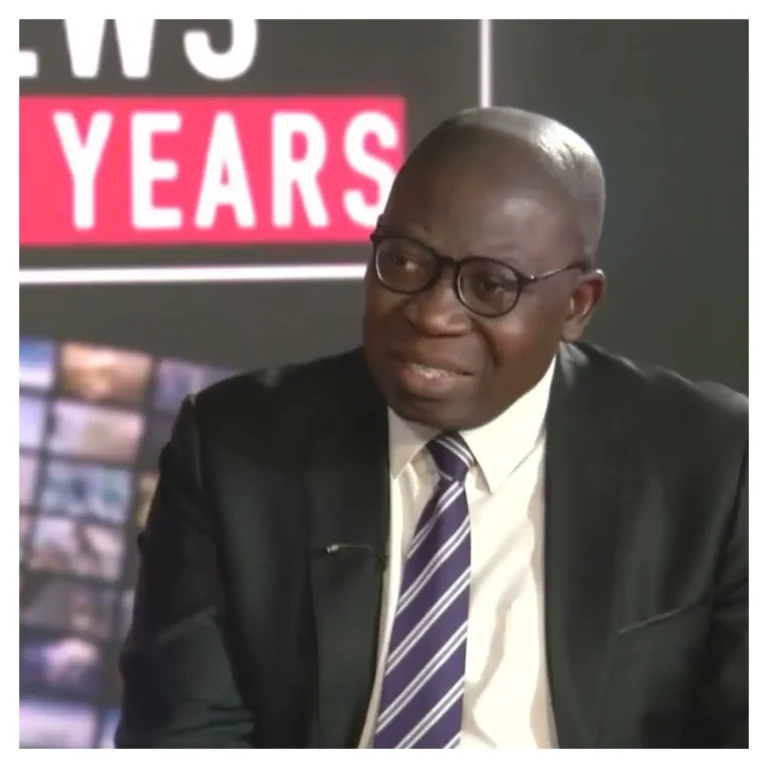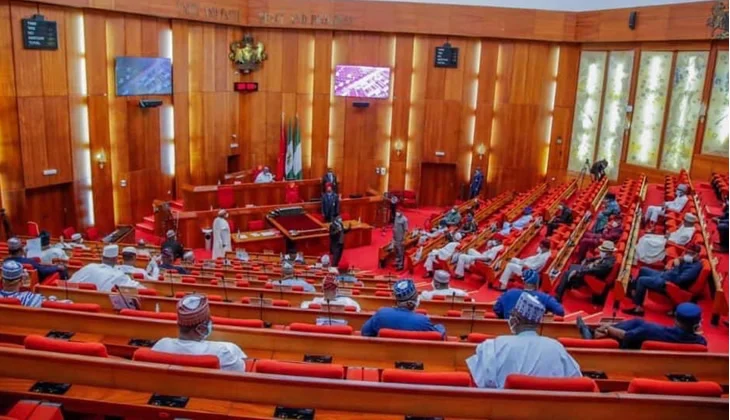
In a scathing criticism against the shameful conduct of a professor jailed for rigging an election for Nigeria’s Senate President, Godswill Akpabio, the Court of Appeal, Calabar, has said that the rank of a university professor is not meant for fools.
“The rank of (a) university professor is not one easily attainable and is certainly not a rank attained by fools,” the court said in its judgement affirming the 25 March 2021 conviction and three years’ imprisonment of the professor, Peter Ogban, by the Akwa Ibom State High Court, Ikot Ekpene.
Meanwhile, the professor is walking free, instead of serving his prison terms, because of Nigeria’s broken criminal justice system.
PREMIUM TIMES reported the Appeal Court judgement delivered on 30 April, but we could only get the certified true copy on Tuesday, 27 May.
Why the court made the remark against the professor
Justice Joseph Oyewole delivered the judgement on behalf of the three-man panel of justices.
The judge made the “professor not meant for fools” remark when he stated in the judgement that he agreed with the trial court rejection of Mr Ogban’s argument on why he altered the results of the 2019 senatorial election in two local government areas – Oruk Anam and Etim Ekpo – in Mr Akpabio’s favour.
Mr Ogban, a professor of soil science at the University of Uyo, was a returning officer in the 2019 general elections in the Akwa Ibom North-West District.
Mr Akpabio, then-incumbent senator for the district and a candidate of the All Progressives Congress (APC), was seeking re-election after defecting from the Peoples Democratic Party (PDP). However, he was defeated by the PDP candidate, Chris Ekpenyong, a former deputy governor of Akwa Ibom State.
The Independent National Electoral Commission, which prosecuted Mr Ogban on a two-count charge of fraudulent manipulation of election results and falsification, publication and announcement of fake election results, had presented two witnesses – the collation officers in Oruk Anam and Etim Ekpo – who told the trial court that the final results the professor published were different from the ones they, as collation officers, originated from their respective local government areas.
In the Appeal Court judgement, Justice Oyewole said, “The two (prosecution) witnesses were consistent in pointing out the figures entered by them in exhibits 2 and 5 for the APC and PDP which were altered by the Appellant (Professor Ogban) in exhibit 3.”
“The Appellant in his testimony at trial as DW1 admitted that PW1 and PW2 submitted exhibits 2 and 5 to him and that he was the author of exhibit 3. The Appellant in his defence stated, however, that his figures in exhibit 3 were derived from the verbal pronouncements made by PW1 and PW2 while submitting the results and not the cold figures inscribed in exhibits 2 and 5.
“The defence was rejected by the lower court and I can appreciate why this was so. The rank of university professor is not one easily attainable and is certainly not a rank attained by fools.
“The figures involved were consistent in the manipulation as to ensure that no alteration occurred in the final votes tally. The figures in exhibit 3 showed variations from the figures submitted by PW1 and PW2 to the Appellant as evident from exhibits 2 and 5 and support the finding of the lower court that the figures were falsified by the Appellant in exhibit 3. It is therefore my considered view that the testimonies of PW1 and PW2 as authors of exhibits 2 and 5 were therefore conclusive in respect of the original authentic figures manipulated by the Appellant,” the judge ruled.
Among Mr Ogban’s four grounds of appeal was that the prosecution denied him the right to a fair hearing because he was not given an opportunity to make extra-judicial statements to defend himself before charges were filed against him. However, the Appeal Court ruled that the professor could not sustain the allegation of denial of his right to a fair hearing.
“The Appellant testified as DW1 at trial, and part of his evidence under cross-examination can be gleaned on pages 86-87 of the record of appeal. Therein, the Appellant stated that he was invited by the Respondent and did appear before its panel to testify and be questioned on the subject-matter of exhibit 3. It is therefore evidently clear that the Appellant was afforded an opportunity to clear his name and exculpate himself before charges were filed against him in court,” the Appeal Court said.
“In the entire circumstances, the four issues are resolved against the Appellant and in favour of the Respondent.
“This appeal is devoid of merit, and it is accordingly dismissed. The judgement of the lower court is accordingly affirmed, including sentence,” the court said.
No pity or mercy for disgraced professor – Judge
A member of the Appeal Court panel, Justice Peter Obiorah, in siding with Justice Oyewole’s ruling, said Mr Ogban betrayed the public by fraudulently manipulating the results of the senatorial election.
“The Appellant, a university professor, betrayed public trust when he went the ignoble and shameful way of undermining the integrity of our democratic electoral process. If a person of his status can be involved in such despicable activity which portray him as a person without integrity, then one wonders what type of knowledge he will be imparting on the students under his care in the university.
“The Appellant does not deserve any pity or mercy as he chose the despicable and ignoble action he took during the election and must therefore expect the consequences.
“I hope that the fate of the Appellant would serve as a clear signal to persons who would play any role in the nation’s electoral process that any deviation from the path of integrity and honour will have unpleasant consequences,” the judge said.


